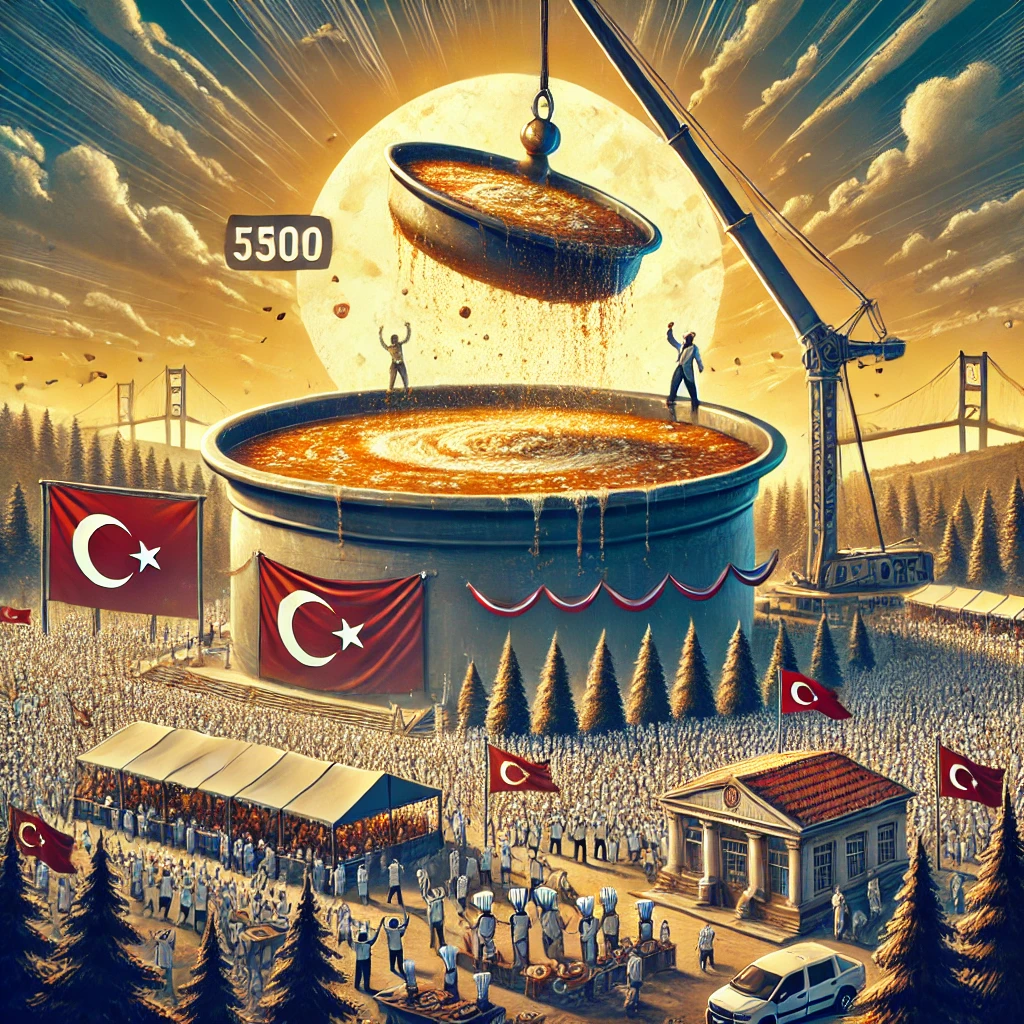Turkey’s largest city, Istanbul, has reached a significant milestone, with the Interior Ministry revealing that nearly 1.1 million foreigners now reside within its borders. Of particular note is the government’s recent decision to halt the registration of new foreign residents in the Fatih District, a historic area that covers the city’s old town. This move underscores the challenges that come with managing a diverse and growing population in one of the world’s most vibrant cities.
As of November 2023, Interior Minister Ali Yerlikaya announced that 1.092 million foreigners currently live in Istanbul with official permits. This figure is substantial, given that Istanbul’s total population is around 16 million. Yerlikaya made it clear that this number only includes those with legal permission to reside in the city, distinguishing between regular migrants and what he referred to as “irregular immigrants” or “illegal immigrants.” This distinction is crucial in understanding the broader context of migration in Turkey, a country that has become a hub for migrants and refugees in recent years.
Yerlikaya also highlighted that 350,000 of these foreigners are Syrians under temporary protection. The influx of Syrians into Turkey has been a significant issue since the Syrian civil war began in 2011, leading to millions seeking refuge in neighbouring countries. In Istanbul’s Fatih District alone, the number of foreigners has seen significant changes. In 2019, Fatih was home to 103,600 foreigners. However, recent figures show that only 40,000 foreigners, including 20,000 Syrians, currently reside in the district. The sharp decrease is a result of government policies aimed at balancing the ratio of foreigners to Turkish citizens in certain areas.
This policy is not unique to Istanbul. Other cities, such as Antalya, have also implemented similar measures to manage the foreigner population. The government’s approach seeks to address the increasing strain on local resources and the potential for social tensions between foreigners and Turkish citizens. The presence of nearly 4.74 million foreigners across Turkey, of whom 3.27 million are Syrians under temporary protection, is a significant issue that continues to dominate the national conversation.
The challenges posed by this large foreign population are multifaceted. Over the past decade, Turkey has experienced multiple waves of migration, with the most recent surge stemming from the Russian invasion of Ukraine. Government data indicates that approximately 145,000 Russians and Ukrainians have sought refuge in Turkey following the conflict. This adds another layer of complexity to an already strained system.
Despite the official figures, there is widespread speculation that the real number of foreigners in Turkey may be higher. Experts and opposition parties suggest that the government’s data might underestimate the actual numbers, with some estimates suggesting over 13 million foreigners, both legal and illegal, currently reside in the country. The far-right and anti-migration Victory Party has been particularly vocal about this issue, claiming that the presence of foreigners far exceeds official reports.
The ongoing economic difficulties in Turkey, coupled with the high number of Syrian refugees, have exacerbated tensions between the local population and the foreign community. These tensions have provided fertile ground for the rise of far-right and anti-migration sentiments. The Victory Party, which gained 2.30 per cent of the vote in the 2023 general elections, has been at the forefront of these discussions. Its presidential candidate, Sinan Oğan, secured 4.76 per cent of the vote in the presidential elections, signalling a growing base of support for these views.
Turkey’s handling of its foreign population, particularly in Istanbul, will likely remain a contentious issue in the coming years. As the country navigates the complexities of migration, economic challenges, and social cohesion, the government’s policies and their impact on both citizens and foreigners will be closely watched.






